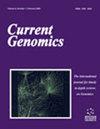泛基因组学:洞察功能基因组、应用、进步与挑战
IF 1.4
4区 生物学
Q4 BIOCHEMISTRY & MOLECULAR BIOLOGY
引用次数: 0
摘要
:泛基因组是特定物种中常见和特有基因组的汇编。它包含了所有取样基因组的遗传信息,产生了大量不同的遗传物质。与典型的基因组研究相比,泛基因组分析具有各种优势。它将所有取样基因组的遗传信息结合在一起,形成了一个庞大而多样的遗传物质谱系。泛基因组分析与传统的基因组研究相比有很多好处。尽管最近的泛基因组研究利用最先进的测序技术为生物多样性和改良提供了新的启示,但泛基因组学在改良方面的潜在用途尚未得到充分发挥。各种生物的泛基因组研究表明,利用泛基因组方法可以研究缺失的遗传成分和检测重要的结构变异(SV)。许多个体特异性序列与生物适应性、表型和关键经济属性有关。本研究旨在重点探讨泛基因组分析如何发现包括人类在内的各种生物的遗传差异及其对表型的影响,以及如何帮助我们理解物种的多样性。综述还集中讨论了潜在的问题以及未来庞基因组研究的前景。本文章由计算机程序翻译,如有差异,请以英文原文为准。
Pan-Genomics: Insight into the Functional Genome, Applications, Advancements, and Challenges
: A pan-genome is a compilation of the common and unique genomes found in a given species. It incorporates the genetic information from all of the genomes sampled, producing a big and diverse set of genetic material. Pan-genomic analysis has various advantages over typical genomics research. It creates a vast and varied spectrum of genetic material by combining the genetic data from all the sampled genomes. Comparing pan-genomics analysis to conventional genomic research, there are a number of benefits. Although the most recent era of pan-genomic studies has used cutting-edge sequencing technology to shed fresh light on biological variety and improvement, the potential uses of pan-genomics in improvement have not yet been fully realized. Pangenome research in various organisms has demonstrated that missing genetic components and the detection of significant Structural Variants (SVs) can be investigated using pan-genomic methods. Many individual-specific sequences have been linked to biological adaptability, phenotypic, and key economic attributes. This study aims to focus on how pangenome analysis uncovers genetic differences in various organisms, including human, and their effects on phenotypes, as well as how this might help us comprehend the diversity of species. The review also concentrated on potential problems and the prospects for future pangenome research.
求助全文
通过发布文献求助,成功后即可免费获取论文全文。
去求助
来源期刊

Current Genomics
生物-生化与分子生物学
CiteScore
5.20
自引率
0.00%
发文量
29
审稿时长
>0 weeks
期刊介绍:
Current Genomics is a peer-reviewed journal that provides essential reading about the latest and most important developments in genome science and related fields of research. Systems biology, systems modeling, machine learning, network inference, bioinformatics, computational biology, epigenetics, single cell genomics, extracellular vesicles, quantitative biology, and synthetic biology for the study of evolution, development, maintenance, aging and that of human health, human diseases, clinical genomics and precision medicine are topics of particular interest. The journal covers plant genomics. The journal will not consider articles dealing with breeding and livestock.
Current Genomics publishes three types of articles including:
i) Research papers from internationally-recognized experts reporting on new and original data generated at the genome scale level. Position papers dealing with new or challenging methodological approaches, whether experimental or mathematical, are greatly welcome in this section.
ii) Authoritative and comprehensive full-length or mini reviews from widely recognized experts, covering the latest developments in genome science and related fields of research such as systems biology, statistics and machine learning, quantitative biology, and precision medicine. Proposals for mini-hot topics (2-3 review papers) and full hot topics (6-8 review papers) guest edited by internationally-recognized experts are welcome in this section. Hot topic proposals should not contain original data and they should contain articles originating from at least 2 different countries.
iii) Opinion papers from internationally recognized experts addressing contemporary questions and issues in the field of genome science and systems biology and basic and clinical research practices.
 求助内容:
求助内容: 应助结果提醒方式:
应助结果提醒方式:


